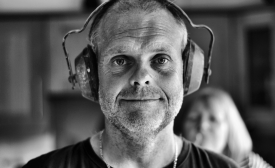digital age

Corneliu Bjola on how embassies and MFAs can properly respond to crises using digital tools.
Once a crisis begins to unfold, confusion about the nature, severity, and possible implications of the event is the immediate consequence to affect both authorities and the public. Ironically, this outcome is not prompted by the shortage of information about what is going on, but rather by the abundance of reports on social media channels, most of them reflecting individual reactions to the event, often times with little factual evidence to support them.

Chris Hensman & Shawn Powers discuss how the rise of digital technology poses a threat to PD practitioners.
Sunday’s election in France made most people breathe a little easier but the worldwide trend is still troublesome. Nations are turning inward and if not building physical walls, as President Trump has proposed, they are erecting rules and new regulations [...] Last month at a Culture Summit in Abu Dhabi, United Arab Emirates, called “The Creative Mind of the Connected World: Culture as a Change Agent in the Digital Age,”
When we think of diplomacy, we may think of talking — people in a room, face to face. But that world of diplomacy is changing and the connected world is playing a much greater role, according to Anne-Marie Slaughter, who worked for the State Department during the Obama administration. Slaughter's new book is called "The Chessboard & the Web: Strategies of Connection in a Networked World." She spoke with us about what it means to be a diplomat in the digital age.
The Kremlin is trying to split the West by spreading “altered facts,” conducting blackmail and setting up front organizations, the U.S. State Department said, in 1981. So-called active measures were common during the Cold War, when the U.S. and the Soviet Union sought to unify and divide Europe with equal urgency. Now those tactics appear to be back, retooled for the digital age

Why big data and deep data approaches are critical.
Hundreds of young Muslim women from the west who travelled to Syria to marry fighters of the Islamic State in Iraq and the Levant, known as Isis, are part of what experts call, the “soft-power” of the militants. Isis has used social media to attract new recruits and build an image of the group as a reincarnation of the just and righteous state to which many Muslims aspire.







